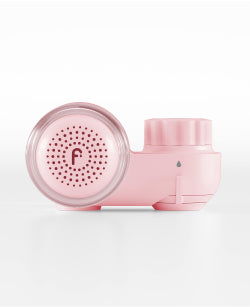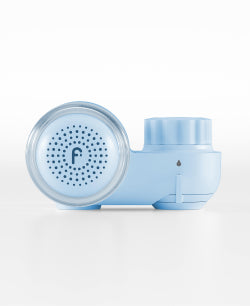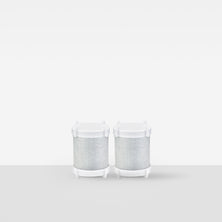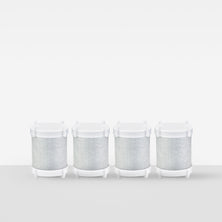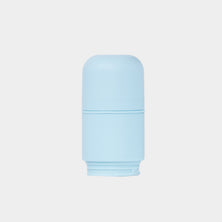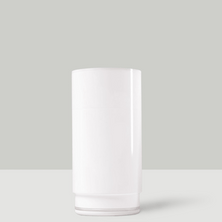Sensitive skin is more common than you think! There are even aspects of your day-to-day life that could be contributing to your irritation that you might not suspect. We’re here to help break down the causes and solutions!
1. What is sensitive skin?
Sensitive skin is very common for individuals and oftentimes arises as a reaction to certain skin care products or other household products. This irritation many times leads to itchiness, redness, cracking, burning, or tightness. Having an uncomfortable feeling regardless of having a noticeable reaction also leads individuals to presume that they have dry skin.
Dermatologists look for specific things while addressing sensitive skin:
- Struggling with reactive skin–people may notice irritation from certain products, soaps, or detergents.
- Noticeable skin bumps or erosions
- Dry skin can ultimately lead to breakouts or cracked skin.
- Rashes, blushing, and flushing are also common signals of sensitive skin.
2. Do I have sensitive skin?
There are some common symptoms of sensitive skin that you can look for yourself. Some of the easy-to-notice signs include redness after hot water, dryness as a result of different temperatures, and irritation with new products. Trying any new products in a small test spot could help eliminate some of the irritants and save you a trip to the dermatologist.
Having your dermatologist look at your skin is one of the best ways to determine what is sensitive skin. They can best determine the possible causes and treatments to help with the irritation.
3. What are the causes of sensitive skin?
There isn’t one solid cause for having sensitive skin. Many different aspects of your day-to-day life could contribute to any irritation.
Some of the possible causes are:
- Skin reactions or disorders like eczema, dermatitis, rosacea, or other allergic reactions
- Skin that becomes dry or irritated becomes less effective as a protectant from nerve endings
- Harsh environments that damage the skin barrier, such as wind, sun, or uncontrolled heat or cold
There are many more contributing factors to having sensitive skin. For instance, age, gender, race, and genetic differences all tie into the differences in the likelihood of having irritable skin.
4. What are the medical tests for sensitive skin?
While it is difficult to run medical tests to determine the sensitivity of an individual's skin, many dermatologists run patch tests to determine if any sensitivity results from any allergies. Exposure to allergens can cause more discomfort and irritation to the skin.
5. Should men be worried about sensitive skin?
Yes! Everyone should be keeping their skin healthy–it’s important for both men and women to avoid irritation.
6. What are the best ways to care for sensitive skin, especially face skin?
Clean Water: Applying clean water to your skin can directly improve the health of your skin by avoiding many contaminants and chemicals. Sensitive skin responds to the products that are used on it, including the water! Using a water filter, like Filterbaby, to illuminate all the harmful aspects of tap water while washing your skin can dramatically improve the appearance of any cracks, redness, and irritation that comes along with sensitive skin. Along with using filtered water, using gentle cleansers with little fragrance or detergents can also lessen pain or irritation.
In a study focusing on water contaminants, Dr. Brown found that the use of unfiltered water can directly lead to more sensitive skin due to the exposure to different chemicals;
“Washing in hard water, through an interaction with surfactants in wash products, could damage the skin barrier sufficiently to increase the risk of developing AD (atopic dermatitis) in this age group.”
Moisturizing: Applying moisturizer to your skin regularly can counteract the side effects of having sensitive skin. The skin will retain moisture, and it will help to avoid cracking or dermatitis.
7. What should I be looking for in skin products?
When you’re looking for skincare products, follow these golden rules:
- The fewer the ingredients, the better
- Avoid fragrances and dyes
There are several additives that you should be avoiding:
- Drying alcohols
- Alpha-hydroxy acids
- Deodorant ingredients
8. What are the best types of cosmetics for sensitive skin?
There are certain tips to follow regarding cosmetics that would help mitigate any contribution that it has to any skin irritations.
- Make sure to take note of the turnover rate for each of your products. Old cosmetics can spoil, causing more bacteria and irritants to develop.
- Waterproof cosmetics can be more abrasive. Removing waterproof is harder than regular cosmetics leading to more scrubbing and pulling at the skin.
- Avoid latex, sometimes found in eyeliners, eyebrow fillers, or other eye products. Latex is sometimes an allergen, and it is best to avoid
- Check the ingredients on your products. Look for the fewest preservatives as well as silicone-free products.
9. How should I test unfamiliar products if I have sensitive skin?
You should always test new products slowly to make sure they work for your skin.
- Try a patch test. Creating a test spot in a small area helps prevent widespread reactions. Apply new products to a small area before using them on your entire face.
- Apply products in small doses and work your way up.
10. What are tips and tricks for different season if I have sensitive skin?
While many people think that wearing an SPF is mainly important in the summer, it is important to apply sunscreen year-round–the sun doesn't go away in the winter!
An SPF of 30 or higher is helpful to keep the sun from irritating the skin.
Summer
- Protect your skin from the sun with SPF and shade. Laying out in the sun can cause more damage than usual to sensitive, thin skin.
- Reapply your sunscreen regularly and opt for higher SPF.
- Avoiding the direct sun is the best way to avoid any extra damage. A hat and sunglasses are key. Make sure to reapply sunscreen throughout the day as well.
Winter
In the winter, focus on moisturizing and hydrating. Chilly air and drying furnaces can take a toll on your sensitive skin. Be gentle with your skin. Pat dry after showers and apply moisturizer to lock in as much moisture as possible. Look out for moisturizers that include petrolatum, glycerin, mineral oil, and ceramides are helpful as well.
11. What types of sunscreen should I look for if I have sensitive skin?
SPF of 30 or higher is important to make sure that it is effective. Dermatologists also recommend sunscreens that contain active ingredients of zinc oxide or titanium dioxide. These minerals are effective at blocking harmful UV rays and have a lower chance at triggering an allergic reaction.
12. How and when do doctors diagnose sensitive skin?
This one is tricky. Often, people switch products instead of seeking professional help due to irritating products. Many people only see a dermatologist if the reaction persists without continued use of the irritating product.
As mentioned above, if a dermatologist is involved, they will look for conditions such as rosacea or eczema that could be causing the skin reactions instead. They also check for allergies to rule out certain products that shouldn’t be used to help reduce any reactions that might occur.
If your sensitive skin is irritated without relief, consider consulting a dermatologist.
13. What are the best clothing fabrics for sensitive skin?
Typically, it is smart to avoid anything abrasive and rough that could irritate the skin. Instead, opt for soft and smooth fabrics. Flowy and loose-fitting clothing is also helpful.
Natural materials are also often a better choice. Natural materials–like cotton and silk–are great options for sensitive skin and come with the added benefits of being more sustainable.
For very sensitive skin, you may also want to consider avoiding bleached and heavily dyed fabrics. And don’t forget to give new garments are deep clean before wearing them.
14. Are there diseases and conditions associated with sensitive skin?
Sensitive skin usually goes hand-in-hand with skin conditions such as acne, dermatitis, eczema, or rosacea; however, having sensitive skin doesn't mean that you have another skin condition.
If you suspect that your sensitive skin is the result of an underlying skin condition, consult with your GP or a dermatologist.
15. Is the safety of cosmetics regulated?
The FDA regulates the production of cosmetics more than the cosmetics themselves. The FDA typically regulates medications instead of cosmetics. Instead of regulating the actual product, the FDA does regulate the production, packaging, and ingredients.
Cosmetics that are FDA-approved are only approved in terms of their
- Safety
- Proper labeling
- Proper branded
16. Are "hypoallergenic" products better for sensitive skin?
Unfortunately, hypoallergenic is an unregulated term. This means that companies can label anything hypoallergenic that they deem appropriate. The label doesn't guarantee the safety of any product. It is still important to check the ingredients and do a spot test before trying any product, regardless of the packaging.
17. How do I know if something is likely to irritate my sensitive skin?
A little research goes a long way. You can look up the product's name in databases like the National Institutes of Health and the National Library of Medicine, which have information on many products.
18. Is eating healthy good for my sensitive skin?
Yes! It is important to eat healthily for a plethora of reasons- for the inside of your body and the out.
19. Can children outgrow sensitive skin?
While Psoriasis is typically untreatable, there are some skin conditions that children outgrow. Eczema can usually be outgrown by children, and there is about a 50-50 chance that eczema goes away in teens. People ages 11-30 are usually more at risk for sensitive skin because of the sensitivity that comes along with acne and other short-term conditions.
20. Is sensitive skin inherited?
It could be! Several skin conditions that go hand-in-hand with sensitive skin can be inherited:
- Eczema
- Rosacea
- Psoriasis
On the other hand, the irritation that comes from different products and cosmetics is not likely to be inherited.

